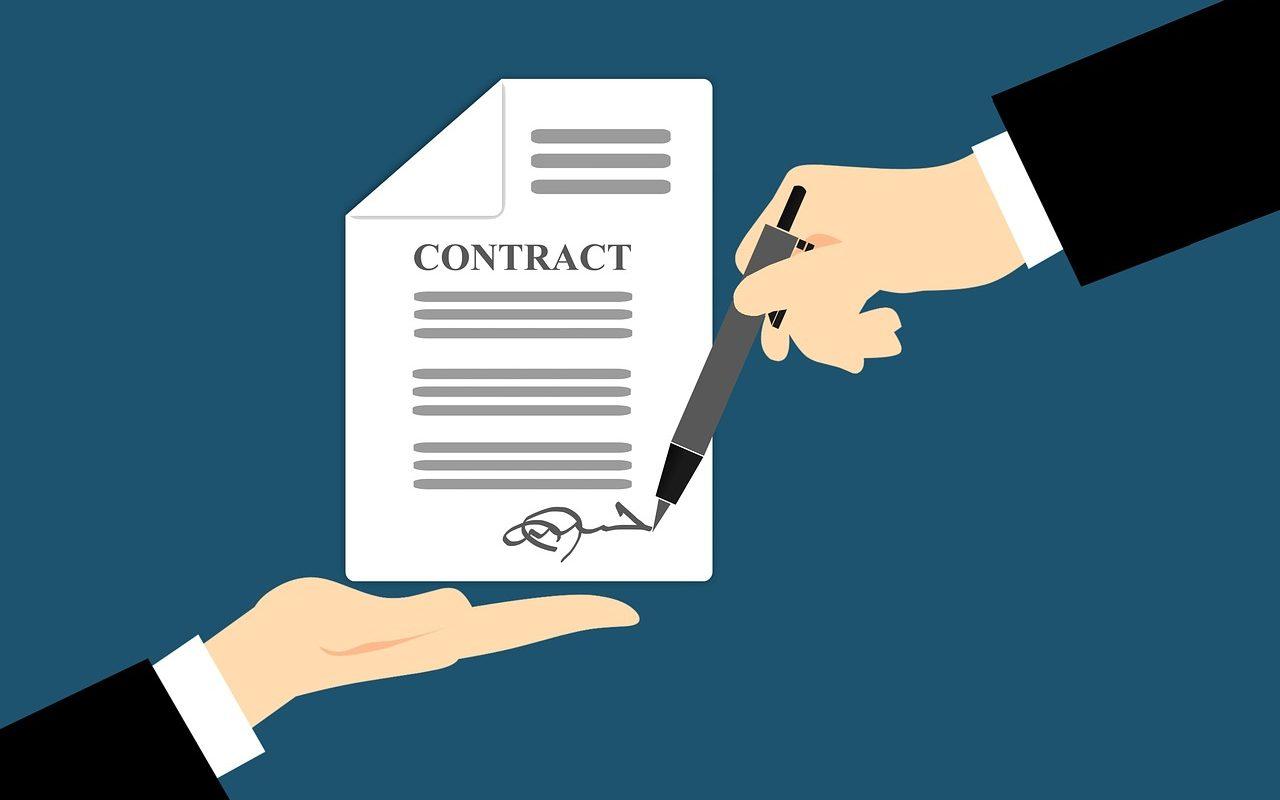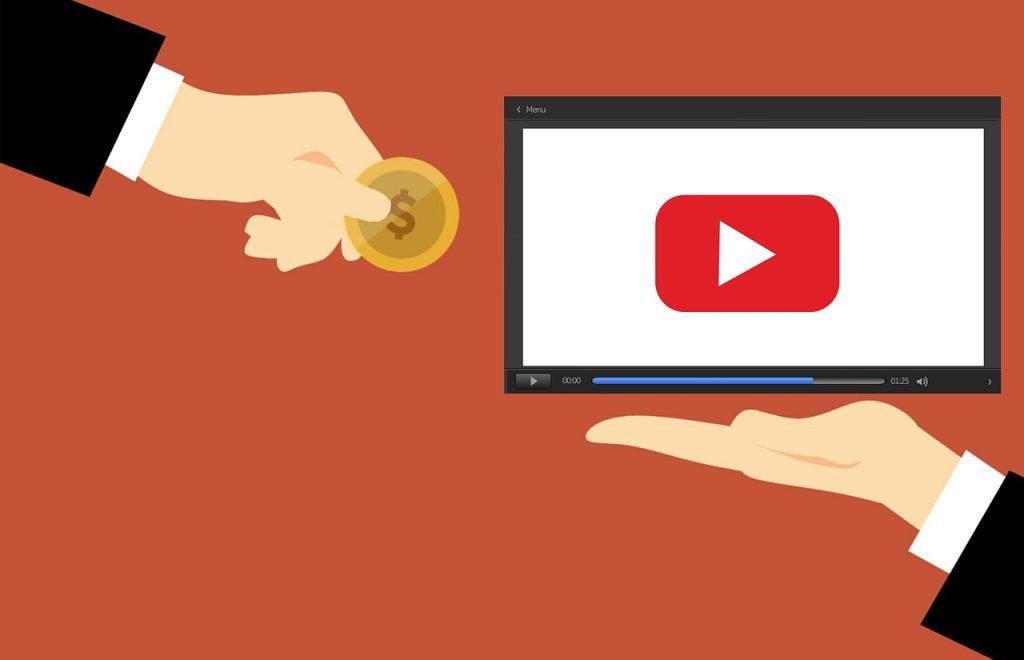Ever thought about selling your website? It can be a profitable venture, but there’s more to it than just finding a buyer and signing a contract.
This article will guide you through the essentials of selling a website, from understanding its value to negotiating the best deal.
1. Understanding the Value of Your Website
Firstly, be aware of what your site is worth. If your website has been built from scratch it’s important to accurately assess its value so you can get the most from the sale. Therefore, you need to understand what a potential buyer will be interested in.
Commonly it’s going to be the amount of traffic, revenue generated, and the number of active users your website has. However, there are some other considerations such as the site’s age from registration, the amount of content the site has, its topical authority and its position among its online competitors.
What Factors Determine a Website’s Worth
A website is only worth what someone else is willing to pay for it, but the typical method of valuation for an online business is a multiple of (30-50 times) the monthly or yearly profit (2-4 years).
A website’s multiple is influenced by several elements such as traffic, domain authority, revenue, and growth potential. Traffic and domain authority show the ability to draw visitors, while revenue (or potential revenue) shows the potential for monetization. While growth potential determines a website’s long-term income prospects.
When attempting to determine a site’s worth, it’s important to consider all aspects of the business, including its current performance and future growth opportunities.
Most Common Sources of Value
- Traffic – The number of visitors a website receives can significantly influence its worth. More traffic typically means more potential for earnings and expansion.
- Domain Authority – Websites with high domain authority are deemed to be reputable or trustworthy, which can increase their rankability, marketability and therefore it worth.
- Revenue – The amount of money brought in by a website is one of the most important factors when it comes to determining value.
- Growth Potential – When assessing a website’s worth, look at its future growth prospects and potential for monetization.
- Unique Content – Quality content sets a website apart from competitors and adds to its value.
- Site Age – The age of a site is a factor for search ranking.
- Design and Branding – A website’s design is a major factor in user experience and can impact its worth.
- Source Code – If the source code of a website is robust, it may be highly sought after by those looking to develop their own site or buy an existing one.
How to Accurately Estimate Your Website’s Value
There are online tools available that can help estimate your website’s value based on these factors. Some of these tools are free, while others require a subscription fee.
For example, when asked about traffic, make sure to include only unique visitors per month rather than total page views. Similarly, if asked about advertising revenue, make sure to list only net income instead of gross income so that all related expenses are accounted for.
It is also important to remember that the estimated value provided by these tools is not necessarily the exact amount you will receive if you decide to sell your website.
This figure is simply a starting point that potential buyers will use as a basis for further negotiation. This is one of the reasons why it is important to research potential buyers before entering into any agreement.
To get an accurate idea of what your website is worth, you should look at sales data for similar websites. By analyzing the market conditions and past sales of comparable websites, you can get a much clearer idea of how much your website could be worth.
Get High-Level Support
2. Preparing Your Website for Sale
Next, you need to prepare your website for sale. This includes ensuring that all of your content is up-to-date, SEO-optimised, and properly maintained.
Additionally, it’s important to have a list of any advertising campaigns you’ve run as well as any affiliate relationships you’ve established. All this information will be invaluable in helping potential buyers understand the value of your website.
It’s also a good idea to have some metrics in place that can easily be shared with potential buyers. These should include page views, unique visitors, bounce rate, conversion rate, user engagement data (if available), and any other relevant key performance indicators (KPIs).
Finally, you will need to make sure that all of your payment systems are functioning properly and that all of your intellectual property is properly protected.
This includes copyrights, trademarks, and any other legal documents relating to the website. Having this information in order will help make the sales process much smoother.
Improving Your Website’s SEO
Enhance your SEO strategy to boost your website’s visibility and attract more potential buyers. Search engine optimization (SEO) is one of the most important aspects of selling a website.
To start, ensure that your website has relevant content and keywords throughout all pages. Aim to add original, high-quality content that is optimized for search engines.
Optimise meta tags such as title tags and descriptions to make sure they are accurate and up-to-date with the contents of your website. Make sure to include keywords and phrases that people are likely to search when looking for a website like yours.
Additionally, use SEO tools such as keyword analysis and link building to increase the chances of your website showing up in search engine results pages (SERPs).
Enhancing User Experience
Ensure your website is user-friendly with an appealing design and easy navigation. This will help potential buyers feel more confident in the purchase.
Make sure it is easy to use and they can quickly find information; consider using videos, images, and other visuals to help present content.
Additionally, ensure that your website is optimized for mobile devices and different browsers.
Streamlining Site Navigation
Make sure all links work correctly, and the site loads quickly to enhance user experience. You should also ensure the navigation of your website is straightforward and convenient.
Investing in professional SEO can help you increase traffic to your website, by improving search engine visibility and optimizing content for better ranking.
Try to make sure all pages are laid out logically; visitors should be able to find what they’re looking for quickly without having to scroll through too much content.
Also, providing relevant internal links and improving the structure of your site can help users find what they’re looking for, as well as keep them on the page longer and reduce bounce rate.

3. Financial Considerations
Understanding your website’s financial standing is crucial. It’s important to know the current market value of your website based on its earnings, traffic, and marketability.
You should also consider any potential costs related to listing your site for sale, such as broker fees or commission payments.
Additionally, it’s crucial that you research other websites in similar fields to gain insight into industry pricing standards and trends so you can set an accurate asking price.
Understanding Your Website’s Revenue Streams
Identify your major revenue streams and how they contribute to your overall income. Knowing what brings in the most money and how to increase income from each source will help you maximize your website’s value when it comes time to sell.
Analyse Your Traffic Sources
Understanding where your traffic is coming from can be a huge part of understanding how valuable your website is.
Each traffic source could bring unique benefits for different types of buyers, so knowing which sources provide the most visitors can help you make a better deal when selling.
Build Your Brand and Reputation
Your website’s reputation is often just as important as its technical side. Make sure your website has positive reviews from customers, an engaging social media presence, and work to build relationships with industry influencers.
These efforts will go a long way in helping you get the best price from a potential buyer.
Develop New Content Strategies
Content remains king, and having an effective content strategy can be the difference between success and failure when it comes time to sell your website.
Investing in developing new content strategies is a great way to increase traffic, engagement, and revenue—all of which will add value for potential buyers.
Develop an Effective SEO Strategy
SEO is essential for driving organic traffic and increasing engagement. Investing in SEO can help make your website more attractive to potential buyers, as it demonstrates that you understand how to effectively reach your target audience.
Incorporate keyword research into your strategy and optimize all content accordingly.
How Profitability Impacts Selling Price
Remember, the more profitable your website, the higher you can set your selling price. This doesn’t mean you should overprice your website, as potential buyers may be put off.
A website that generates good revenue and is profitable can likely fetch a higher price than one with little to no income. It’s important to understand the profitability of the site before you list it for sale in order to maximize its value.
Additionally, some factors can affect the profitability of a website. For example, if the website is dependent on something like advertising or SEO to generate revenue, buyers may be reluctant to invest as they believe that any changes made to the site could cause revenues to dip.
It’s important to make sure the costs associated with your website are also taken into account when calculating its selling price.
If the website is profitable, but the costs associated with running it are very high, you may struggle to find a buyer who’s willing to pay the price you set. Do your research and consider these costs when setting a selling price for your website.

4. Legal Aspects of Selling a Website
Don’t overlook the legal aspects. If you are selling a website that contains copyrighted material, make sure to get permission from the copyright holder.
Furthermore, if you are a party to any contracts related to the website, such as hosting or advertising agreements, ensure these are terminated prior to the sale.
Additionally, consider speaking with an attorney familiar with intellectual property law to ensure that the transfer of ownership is done properly and that all of the necessary steps are taken.
Intellectual Property Concerns
Ensure you have the rights to all content, images, logos, and other IP on your site. These items can be excluded in a sale or you may require that the buyer sign an agreement stating they have no ownership rights to these items.
If your site is particularly complex, you may need to hire a professional IP attorney to ensure the transfer of ownership is done legally.
Privacy Policies and User Data
Understand the implications of transferring user data and ensure your privacy policies are up-to-date. When selling a website, you must ensure that any user data involved in the transfer is transferred securely and legally.
This means being aware of laws such as GDPR and ensuring that your privacy policy has been updated to reflect these changes. Additionally, make sure you understand how the buyer plans on using the user data so you can be certain they will comply with all applicable laws.
5. Finding Potential Buyers
Now, it’s time to find potential buyers. You can search online for webmasters, website owners, and investors who might be interested in buying your site.
There are many resources and forums that you can use to help you locate potential buyers. Once you’ve identified some potential buyers, it’s important to reach out to them as soon as possible.
You want to make sure that you are giving them the right information about your website and its potential. Make sure that they understand what makes your site valuable and why it would be a good investment for them.
Marketing Your Website for Sale
Promote your website on social media, email newsletters, and website selling platforms. You need to let your customers know that you are selling your website and why they should make the purchase.
Advertising it on social media helps to remind vendors of its availability, increasing the chances of a sale. Email newsletters and other online platforms may also be used to advertise your website for sale.
Create an attractive digital advertisement with all relevant information about your website included. Include vivid pictures and key features that make your website stand out from the competition.
Let potential buyers know what they’ll gain by purchasing your website and why it would be beneficial for them to do so.
Perform keyword research to understand what people are searching for related to your website. This will give you an idea of what type of keywords to include when creating ads and optimizing content.
Additionally, it’s important to stay up-to-date on the latest trends in web design and development so you can use them in your marketing efforts.
Leveraging Professional Brokers
Consider using professional brokers who have access to a network of potential buyers. They can help you set an appropriate price for the website, find buyers, and handle negotiations. It is important to do your homework when selecting a broker since services vary greatly between companies.
Examining Buyer Motivations
A key aspect of selling a website is understanding why buyers want to purchase it in the first place. Knowing this will enable you to market the site more effectively. Some potential motivators for buyers include acquiring a customer base, expanding in a particular industry, gaining technology or intellectual property rights, and increasing revenue streams.
Preparing Documentation
When selling your website, you should create clear documentation that outlines the terms of the sale. This can include details regarding how payments will be handled, transfer of ownership and intellectual property rights, warranties and indemnification information, and any other pertinent items.
Negotiating the Deal
If you are going through a broker, they will likely handle negotiations on your behalf. If not, it is important to understand what is negotiable in the sale of your website. This can include things like payment terms, guarantees provided by the seller, and any post-sale services you may provide.
Managing the Transition
Once an agreement has been reached, it is important to manage the transition period. This includes ensuring that content and databases are transferred correctly, setting up new hosting or domain accounts as needed, and providing training to buyers if required. It is also important to ensure that all funds have been paid before the transfer of ownership is complete.

6. Negotiating the Sale
Negotiation is a key aspect of selling your website. It can be tempting to accept the first offer you receive, but take some time to consider it. You want to make sure you’re getting a fair deal and that both buyer and seller are happy with the terms of the sale.
As part of your negotiations, there may be some back-and-forth over price as well as additional terms like an earn-out agreement or a portion of future earnings.
Be sure to discuss any non-monetary considerations, such as intellectual property, copyrights, and other legal restrictions that may come into play.
How to Set a Competitive Asking Price
Set a competitive asking price based on your website’s value and profitability. Consider factors like your website’s age, traffic, revenue growth potential, domain name value, and industry trends.
You should also look at comparable websites that have recently sold and use those prices as a benchmark to price your website competitively.
To get an accurate evaluation of your website’s value, seek out professional appraisals or consult with experienced web brokers who can provide valuable insight and guidance.
Another important consideration when setting a competitive asking price is to factor in the cost of marketing, closing fees, legal costs, and other expenses associated with selling a website.
All these things should be taken into account when determining an accurate asking price for your website. Finally, don’t forget to consider taxes as well – you may be liable for capital gains taxes when you sell a website.
Important Points to Consider During Negotiation
Consider factors like payment terms, transition period, and future commitments during negotiation. These points should be discussed in detail and incorporated into the final contract. By doing this, you will ensure that both parties are clear on their expectations and obligations going forward.
In addition to discussing payment terms, transition period, and future commitments, also discuss any legal issues or liabilities associated with the sale of your website. Make sure to get a thorough understanding of all potential risks and liabilities before proceeding with the sale.
You should also consider investing in a legal review of any contracts you sign in order to protect yourself from potential lawsuits or other legal issues that may arise after the transaction is complete.
7. Post-Sale Considerations
After the sale, ensure a smooth transition. This includes transferring all the necessary documents, passwords and other information to the buyer.
Helping the buyer get up-to-speed with their new website should be a priority as well. Also, ensure that no confidential information is left behind.
Ensuring a Smooth Transition for the Buyer
Provide necessary support to the buyer during the transition period. This includes helping them set up hosting for the website and providing access to any third-party services associated with the site.
It’s important that you hand over all administrative accounts, passwords, and any other information they may need.
Additionally, it’s in your best interest to be available for questions or queries about how certain aspects of the website work. Many buyers may need a few weeks or months for the transition, so it’s important to be available and provide help as needed.
Finally, you should also ensure that all website content is up-to-date and accurate. Buyers will want to know exactly what they are purchasing, so make sure the content reflects this.
This includes making sure any legal documents associated with the website are correct and up-to-date. Once the buyer takes over, they will be responsible for any content or information that is no longer accurate.
Non-compete Agreements and Other Legalities
Be clear about any non-compete agreements or other legalities post-sale. When selling a website, it’s important to make sure that the buyer has access to all of the information they need about your website and related legal matters.
This includes understanding any non-compete agreements or other legalities in place. Make sure you are aware of any rules or regulations regarding ownership and use of the website, as well as any liabilities associated with it.
You also want to be clear about any warranties and guarantees, as well as indemnification clauses. Taking the time to understand these matters ahead of time will help ensure a smoother website sale process.

8. Case Studies of Successful Website Sales
Lastly, learn from those who’ve done it before. Look for case studies from past successful website sales, and study their strategies.
Pay attention to the amount of time they spent on marketing, the types of messages they used in their descriptions, and even how long it took them to close the deal.
Analyze each step of the process to gain valuable insights that you can apply as you go through your own selling journey. By learning from others’ experiences, you can increase your chances of success.
Learning from Past Success Stories
Analyze successful website sale stories to understand what worked for them. Look at the strategies used to get more buyers, what made the website seem attractive to them and any other lessons that you can apply.
These case studies can give you a great sense of what works and which elements are key to consider when selling your own website.
Be sure to analyze the industry and competition as well. What else is out there? Are there better offers? Knowing the answer to these questions will help you accurately price your site and make sure that it stands out.
Common Traits in Successful Sales
Look for common traits in these success stories and try to implement them in your sale process. These traits include:
1. Clarity: It’s important to be clear about your website’s purpose and market value when selling it. Potential buyers want to know exactly what they are getting, so make sure you have an accurate and comprehensive description of the site ready prior to listing it for sale.
2. Authenticity: Be honest about the website’s good and bad points. Don’t overestimate the value of your website or make any false claims that can damage your reputation with potential buyers.
3. Flexibility: Selling a website isn’t a one-size-fits-all process, so be prepared to adjust your sale strategy based on who you’re dealing with. Be willing to negotiate prices, payments, and other terms of the sale.
4. Professionalism: No matter how difficult the sale process becomes, maintain a professional attitude throughout it. This includes responding to inquiries promptly and answering questions accurately.
5. Organization: Keep all communications regarding the website’s sales organized and easily retrievable in case you need to refer back to them.
6. Patience: Selling a website can be a lengthy process, so make sure you are mentally and emotionally prepared for it. Don’t get discouraged if things don’t move as quickly as you’d like; focus on getting the best deal possible in the end.
7. Attention to Detail: Double-check all documents related to the sale. Make sure that all the information is accurate and up-to-date to avoid any problems later on.
Frequently Asked Questions (FAQs)
Here are answers to some common questions about selling a website.
What are common mistakes when selling a website?
Undervaluing the website and not preparing it properly for sale are common mistakes. It’s important to understand the worth of your website and take the time to ensure everything is set up for a successful sale. This includes making sure all contracts are in order, that accounts are properly documented, and that any licensing or certification requirements have been met.
How long does it take to sell a website?
It can take anywhere from a few weeks to several months to sell a website, depending on various factors. You need to identify potential buyers and make sure that the website is properly marketed and promoted. It’s important to have a smooth negotiation process and closing procedure in place before listing the website for sale.
Should I use a broker or sell my website myself?
Both options have pros and cons. A broker may have a wider network of potential buyers, but selling yourself can save you from broker fees. Ultimately it comes down to how confident you feel about selling your website yourself and whether you have the time and resources to dedicate to marketing your website.
If you decide to use a broker, make sure they are reputable and experienced in selling websites. Do your research before making any commitments. Ask questions such as: What do they charge? How long will it take? How big is their buyer network? What methods do they use to advertise your website?
If you go down the DIY route, you’ll need a good understanding of the market value and current trends. You could take guidance from other websites that have been sold recently and research valuation techniques such as comparable sales analysis or discounted cash flows. It’s also important to create an attractive listing and use a variety of marketing channels such as social media, email campaigns, classifieds and more.
How can I increase the value of my website before selling?
Improving SEO, enhancing user experience, and increasing profitability can help increase your website’s value. Start by optimizing your website’s SEO. Using targeted keywords and improving your content can help you rank higher on search engine results.
Having a better SEO ranking will make your website more visible, which means more potential customers. Enhancing the user experience is also important. Make sure the design of your website is modern and that it’s easy to navigate.
Having a clean and intuitive design can help make your website more attractive to potential buyers.
Final Thoughts
Selling a website involves more than just finding a buyer. By understanding your website’s value, preparing it for sale, negotiating effectively, and ensuring a smooth transition, you can make the most out of your sale.
Remember, every website sale is unique, so adapt these tips to suit your specific situation. Good luck!
What You Need To Know Before Starting An Online Business
Starting an online business can be a great way to make money and be your…
How To Make Your Own Brand – Step-by-Step?
Starting a Brand from scratch that stands out from the crowd is not a simple…
How to Get More Clicks For Your Google Ads Campaign
Another effective way to reach your target audience is by implementing Google Ads. However, many…
How To Successfully Run A Facebook Page
Are you looking to run a successful Facebook page? You’re in luck! If you are…
Using Google Trends For Your Market Research…
To grow your business you need to find the right tools for the job. Thanks…
Partners For Content Creators: Getting Started Without the Headache
Are you a content creator, but know little about running an online business? We can…
How To Get Traffic To Your Website From YouTube
Have you ever found yourself pondering over the possibility of amplifying your business exposure, catapulting…
When To Consider Drop Shipping Merchandise On Your Website?
The bottom line about drop shipping, is you don’t need to store manage and ship…









